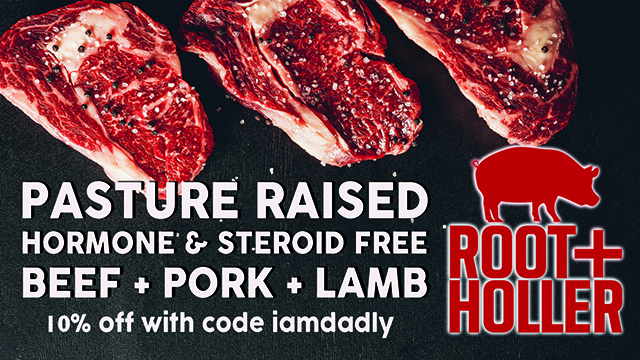
Today, we continue our Dadly Daily Declaration series with readings from The Passion Paradox by authors Brad Stulberg and Steve Magness. So far, Stulberg and Madness have discussed the pitfalls of passion and the sole focus of pursing your passion. Today’s reading continues with a focus on developing the mastery mind-set by embracing patience.
Help support I Am Dadly. We use Amazon Affiliates to help offset the costs of this site. We receive a small commission on each book you purchase through our Amazon links. If you're interested in this terrific read and want to buy it, we'd appreciate if you could use our Amazon Affiliate link!
Here are a few gems from today’s reading:
- The path of mastery is almost always very hard and requires lots of time and unyielding commitment. Any long-term progression contains inevitable periods of boredom. We are hardwired to seek novelty and stimulation, which is why “quick fixes” and “hacks” can be so appealing—even though they rarely, if ever, work. Advancing on the path of mastery, getting the most out of yourself and sustaining passion for a lifetime, requires patience.
- We should probably start treating patience as a valuable skill, a competitive advantage.
- We are becoming less comfortable than ever with stillness, with time and space in which seemingly nothing is happening. One recent study showed that people would rather shock themselves electrically than sit alone without a mobile device for even just a few minutes.
- Patience is a first principle, an enabling factor of the mastery mind-set and the harmonious passion it yields. Without patience, what starts as harmonious passion can easily turn into obsessive passion, becoming maladaptive and causing harm, pain, and suffering.
- Patience, according to renowned strength and conditioning coach Brett Bartholomew, is not an innate trait; it’s a skill to be developed. Almost everyone Barholomew works with is immensely passionate; otherwise, they wouldn’t be near the top. His challenge is this: Because the athletes he trains are already world-class, making them even better is especially difficult. Even the smallest marginal gains are hard to come by. The last few percentage points of performance—the gaps between good, great, and best-ever—take a long time to close.
- When Bartholomew senses an athlete’s persistence and discipline are waning—something he encourages them to reflect on is their purpose. The importance of reflecting on your purpose is also backed by science. Similar to reflecting on your core values, when you reflect on your purpose, not only do you reinforce the mastery mind-set, but you also become more likely to stick with challenges over the long haul.
- In addition to providing a boost in motivation, reflecting on your purpose is beneficial because doing so creates space between impulse—the urge to get upset with every acute failure and take shortcuts or quit—and action. It is within this space that you can remind yourself that there is much about a years-long marriage—be it to a sport, a sculpture, an idea, or a person—that is better than succumbing to the latest and greatest temptation.
- Patience is not just a virtue; it is a skill that must be developed over time. Patience is critical to mastery and harmonious passion. The ability to stay the course and ride out valleys and plateaus separates good from great and harmonious from obsessive passion.
Those gems lead us to today’s Dadly Daily Declaration:
When your persistence and motivation are waining, ask yourself why you’re committed to your pursuit. Reflecting on your purpose reinforces the mastery mind-set and aids you in sticking with your challenge over the long haul.





